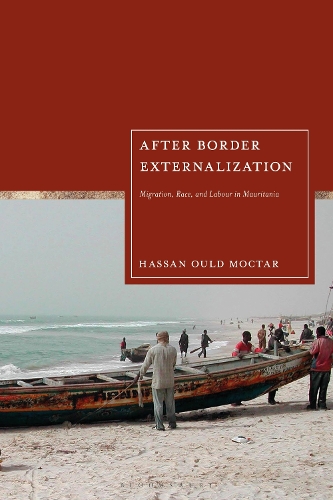
EU Border Externalisation and Postcolonial Capitalism: Insights from Mauritania
(Hardback)
Publishing Details
EU Border Externalisation and Postcolonial Capitalism: Insights from Mauritania
By (Author) Hassan Ould Moctar
Bloomsbury Publishing PLC
Bloomsbury Academic
3rd October 2024
United Kingdom
Classifications
Professional and Scholarly
Non Fiction
Colonialism and imperialism
Capitalism
331.62661
Physical Properties
Hardback
232
Width 160mm, Height 238mm, Spine 18mm
500g
Description
There is a long thread of discussion within migration studies around EU border externalisationthat is, around the European Unions tendency to extend its own border and migration control operations into the Global South. Yet these discussions almost never address the colonial legacy on which this tendency draws or how it interacts with local, colonially inherited power structures. Such oversights have yielded largely ahistorical, abstract understandings of the contemporary offshore operations of the EU border regime. Hassan Ould Moctar here offers a much-needed conversation starter around these issues through a close analysis of a telling case-study: namely, that of the West African state of Mauritania, which remains woefully understudied relative to its importance for EU externalisation strategies. As Moctar shows, Mauritania is representative of much of the Global South insofar as its recently constructed, Global-North-dictated concern with preventing irregular migration draws impetus from longstanding local socio-economic disparities, many of which owe to a deeper historic arc of colonial bordering and racialised population management. In order to trace how all this actually plays out in practice, Moctar offers fine-grained ethnographic accounts of the conditions and experiences of various migrant workers who have come up against the violence of externalisation at various points in their trajectories. By tying these narratives to equally formative experiences of urban informality and rural dispossession, Moctar ultimately demonstrates how the EU border regime in the Global South coalescences between colonially inherited frameworks of racialised territorial belonging and the wasteful dynamics of contemporary postcolonial capitalism.
Author Bio
Hassan Ould Moctar is an ESRC Postdoctoral Research Fellow in the Department of Development Studies, University of London, UK.
